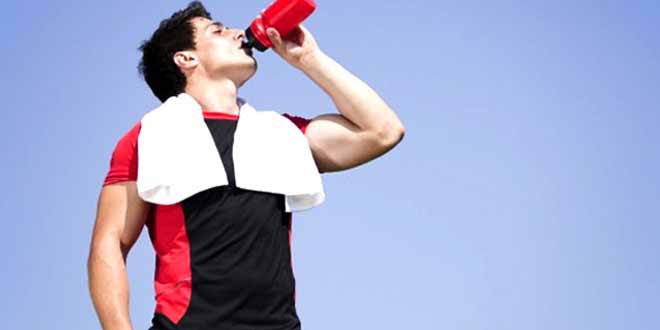
The Importance of Electrolytes after Exercise
Did you know that an electrolyte imbalance has the power to impair the normal functioning of your system? These minute particles may not be awarded much importance, but their ability to regulate your system’s optimal functioning cannot be ignored. Research has linked electrolytes to exercise simply because profuse sweating during a strenuous workout causes a loss of essential electrolytes. The replacement of these electrolytes is vital for your body’s recovery. Let’s find out a little more about electrolytes and their connection to exercise.
The Role of Electrolytes in Your Body
We’re going to make this explanation as uncomplicated as possible, so let’s just cover the basics to get a hang of the critical role of electrolytes.
What are electrolytes? They are minerals that exist as minute electrically charged particles (ions) in the presence of water. They are found in the blood and cells, and are essential to physical activity because they regulate bodily fluids. Your cells are constantly bathed in bodily fluids, and the movement of electrolytes in and out of the cells helps to maintain an optimal fluid balance. This is also how electrolytes transport nutrients into cells and transport waste material out of cells. This mechanism is responsible for the contraction and relaxation of muscle groups, the transmission of nerve impulses, blood pressure control, optimal gland functioning, and the regulation of the pH levels of bodily fluids especially blood.
What Happens to Electrolytes During Exercise
The most important electrolytes are sodium and chloride. They regulate blood pressure and maintain normal muscle and nerve function. Others include calcium, potassium, magnesium, and phosphate. Calcium facilitates muscle contraction, magnesium promotes healthy cell functioning, and potassium and phosphate regulate energy levels and pH balances within the body.
Sweating is a natural consequence of physical activity. Electrolytes, mostly sodium, are expelled from the body in the form of sweat. Excessive sweating can increase the risk of an electrolyte imbalance within the body. You will be able to identify this imbalance through the following symptoms:
- Muscle cramps
- Fatigue
- Nausea
- Mental confusion
Electrolyte levels should be replenished immediately post exercise. A persistently low electrolyte supply leads to muscle weakness. Long-term risks include seizures, kidney failure and irregular heart-beat rhythms.
Where Can I Get My Electrolyte Fix From?
The body loses water faster than it loses electrolytes, so drinking water to re-hydrate the body is an important part of any exercise routine. Not everyone loses the same proportion of electrolytes. Certain factors play a role in determining an individual’s susceptibility to the above short term and long term risks. These include the following:
- Most males tend to sweat more than most females. The loss in electrolytes is generally greater for men as compared to women.
- Individuals with more body mass tend to sweat more than individuals who are physically fit or those who have a lower body mass.
- The more intense the workout, the more you sweat and the greater the volume of electrolytes lost.
- Hot weather leads to greater sweat production and more electrolyte loss.
So how can you counter the risk of an electrolyte imbalance? There are several food and drink choices that can help replenish electrolytes:
- Sports drinks, (such as Gatorade or Powerade) are a popular choice.
- Milk.
- Look for drinks that have four to nine percent carbohydrates per eight ounces and 120 to 170 mg of sodium.
- Salty foods (such as pickles), peanut butter and tomato juice are good choices for replenishing sodium.
- Leafy greens, celery, bananas, yoghurt, nuts and beans will help you replenish your natural store of electrolytes.
Health and Exercise, Hand in Hand
Electrolyte imbalances must not be taken lightly. Take special care of your pre and post workout food choices. At these two critical times, your body has certain nutritional demands that must be fulfilled if you wish to pursue physical fitness safely and sustainably. For further information on recommended pre and post workout foods, read: What Should You Eat Before And After A Workout?
Would you like to ask a question, comment, or simply share your knowledge on this subject? Team HTV would love to hear from you! Till then, take care of your health and exercise safely.

